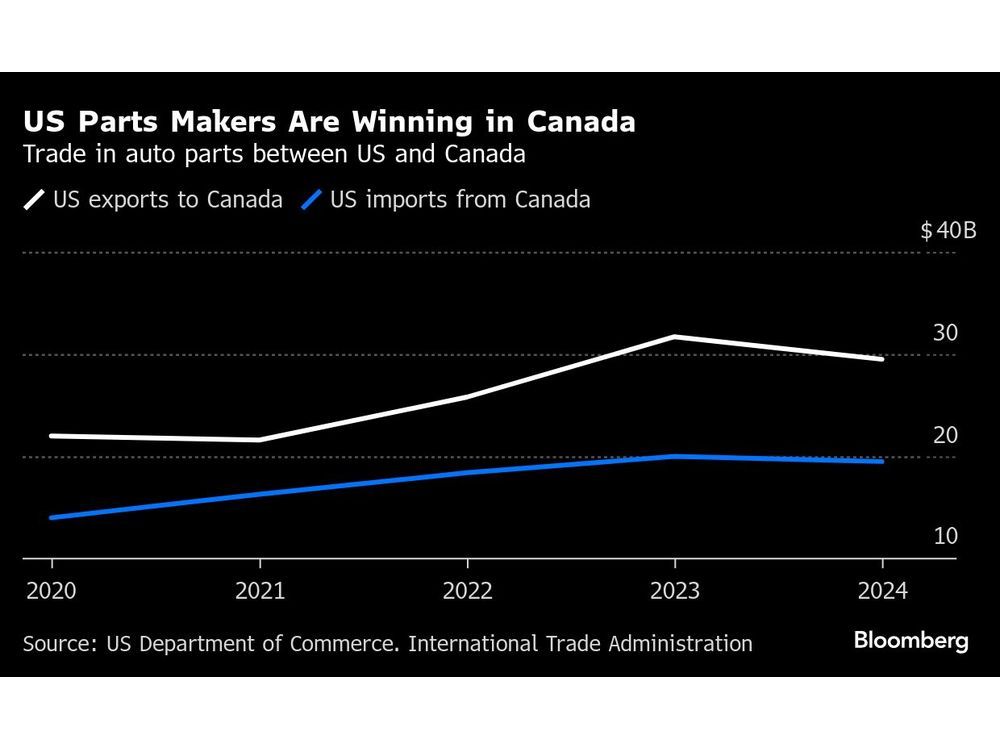Top Stories
Carney Urges Trade Cooperation as US Auto Tariffs Bite Hard

UPDATE: Canadian Prime Minister Mark Carney has issued a stark warning regarding the future of the US auto industry, emphasizing that trade cooperation is essential for competitiveness amid ongoing tariffs imposed by President Donald Trump. Speaking at a business conference in Toronto earlier today, Carney highlighted the crucial role of the US-Mexico-Canada Agreement (USMCA) in maintaining North America’s intertwined automotive supply chain.
In a direct challenge to Trump’s protectionist stance, Carney stated, “For America to be fully competitive, to be globally competitive in autos, you need USMCA.” His comments come in the wake of a meeting with Trump where the two discussed the escalating tensions in the automotive sector. Carney acknowledged that not everyone shares this perspective, indicating a significant divide in trade views.
Trump has previously signed the USMCA during his first term, which aimed to enhance North American component usage in vehicles for tariff-free trade. However, he recently imposed tariffs on foreign-made vehicles, impacting those assembled in Canada and Mexico. The president remarked, “He wants to make cars, we want to make cars, and we’re in competition,” underscoring the competitive dynamics between the two nations.
The fallout from these tariffs is palpable. General Motors Co. has temporarily shut down a Canadian plant and threatened to cut production at another facility, while Stellantis NV has reduced shifts at its Windsor, Ontario plant, directly affecting jobs and production schedules.
US Commerce Secretary Howard Lutnick, addressing the same conference, reiterated Trump’s position, stating that the US does not favor vehicles manufactured in Canada. However, the reality of the automotive supply chain is complex; industry experts reveal that vehicles assembled in Canada typically contain over 50% US parts. In 2022, the US exported $29.5 billion worth of auto parts to Canada while importing $19.5 billion in return, showcasing the deep economic ties between the two countries. Additionally, Canada emerged as the largest foreign buyer of American passenger vehicles and light trucks, purchasing a staggering $23.2 billion worth in the same year.
Carney’s remarks reflect a significant shift in the historical relationship between Canada and the US, as he asserted, “Our relationship will never again be what it was.” This sentiment resonates strongly with industry stakeholders who are now facing an uncertain future due to escalating trade tensions.
As the global automotive landscape continues to evolve, all eyes are on potential negotiations and actions that could reshape these critical trade relationships. The implications for workers, manufacturers, and consumers could be profound, affecting everything from job security to vehicle prices.
Authorities are urging immediate action to address these trade challenges, and businesses are encouraged to prepare for a rapidly changing environment. The automotive sector is at a crossroads, and the decisions made in the coming weeks will have lasting impacts on North American competitiveness.
Stay tuned for more updates as this developing story unfolds.
-

 Politics4 weeks ago
Politics4 weeks agoSecwepemc First Nation Seeks Aboriginal Title Over Kamloops Area
-

 World5 months ago
World5 months agoScientists Unearth Ancient Antarctic Ice to Unlock Climate Secrets
-

 Entertainment5 months ago
Entertainment5 months agoTrump and McCormick to Announce $70 Billion Energy Investments
-

 Science5 months ago
Science5 months agoFour Astronauts Return to Earth After International Space Station Mission
-

 Lifestyle5 months ago
Lifestyle5 months agoTransLink Launches Food Truck Program to Boost Revenue in Vancouver
-

 Technology3 months ago
Technology3 months agoApple Notes Enhances Functionality with Markdown Support in macOS 26
-

 Lifestyle3 months ago
Lifestyle3 months agoManitoba’s Burger Champion Shines Again Amid Dining Innovations
-

 Top Stories2 months ago
Top Stories2 months agoUrgent Update: Fatal Crash on Highway 99 Claims Life of Pitt Meadows Man
-

 Politics4 months ago
Politics4 months agoUkrainian Tennis Star Elina Svitolina Faces Death Threats Online
-

 Sports5 months ago
Sports5 months agoSearch Underway for Missing Hunter Amid Hokkaido Bear Emergency
-

 Politics5 months ago
Politics5 months agoCarney Engages First Nations Leaders at Development Law Summit
-

 Technology5 months ago
Technology5 months agoFrosthaven Launches Early Access on July 31, 2025





















